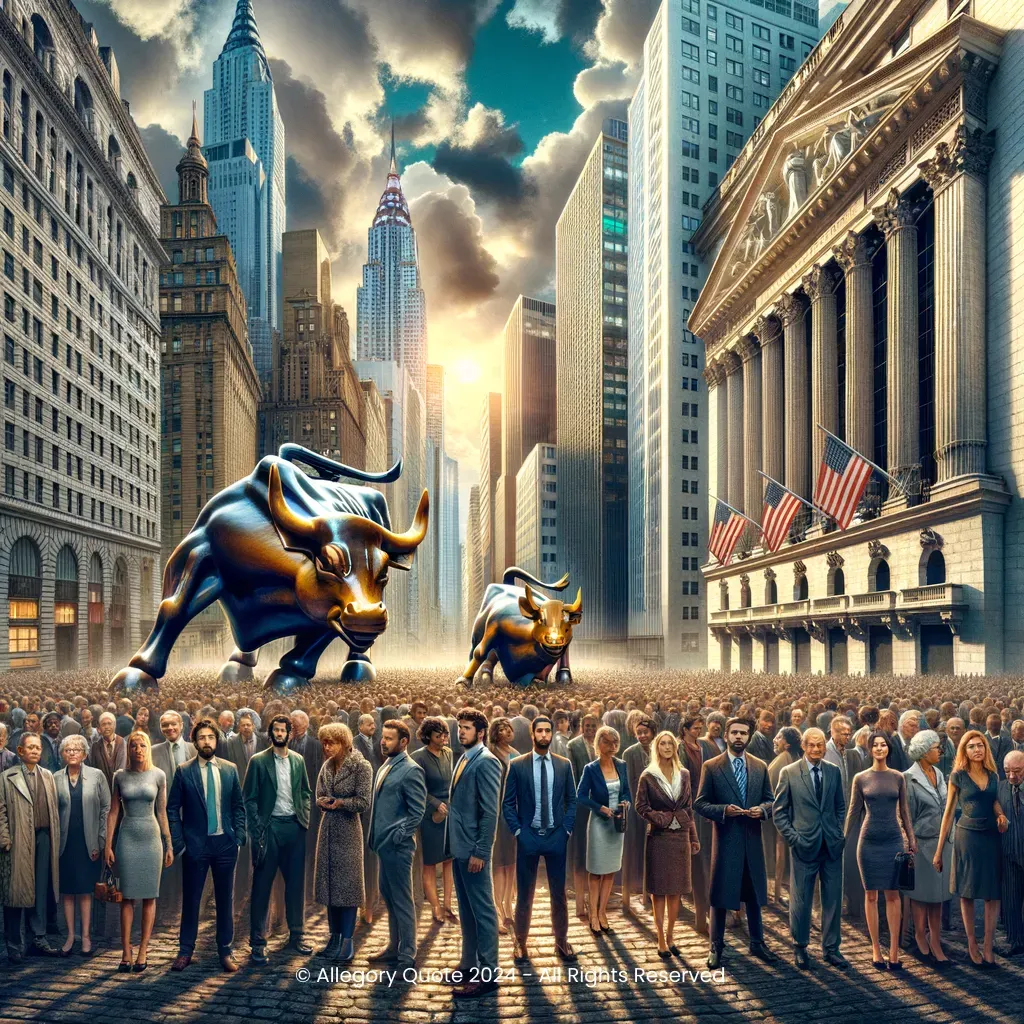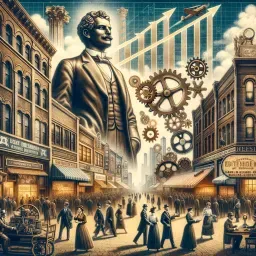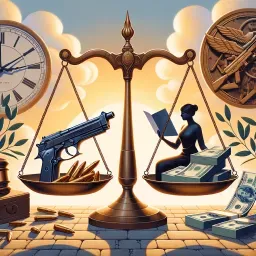Wall Street

0
0
0
0
- Meaning
- "Wall Street" serves as a metonym for the entire financial market and investment community of the United States. It symbolizes the economic power, fluctuating fortunes, and the capitalist ethos of the American financial system. This term often evokes images of bustling stock traders, monumental financial decisions, and the power dynamics of global economics.
- Allegory
- The image elements include the towering skyscrapers that signify Wall Street's immense financial influence. The crowd of diverse individuals symbolizes the wide range of people affected by the financial decisions made on Wall Street. The bull statue stands as a symbol of market optimism and prosperity, whereas the bear statue represents economic downturns and market fears. The transition in the sky from sunlight to clouds illustrates the volatile nature of financial markets, capturing the inherent risks and opportunities that characterize Wall Street.
- Applicability
- The concept of Wall Street can be applied to personal life by understanding the importance of financial literacy, investment, and the impacts of economic policies on individual savings and retirement plans. It also underscores the need to stay informed about financial markets and their influence on the broader economy.
- Impact
- Wall Street has had a profound impact on global culture and economy. It is central to discussions about capitalism, market economies, financial crises, and economic policies. Events like the 1929 Stock Market Crash and the 2008 Financial Crisis have highlighted both the power and vulnerabilities of the finance sector represented by Wall Street. It is often cited in debates about economic inequality and corporate influence.
- Historical Context
- The historical context of Wall Street dates back to the early 17th century when Dutch settlers established a trading post in what is now Lower Manhattan. The actual street was named "Wall Street" after a defensive wall was erected by the Dutch in 1653. Over the centuries, it evolved into a hub for trade and finance, especially following the establishment of the New York Stock Exchange in 1792.
- Criticisms
- Criticisms of Wall Street often center around issues of economic inequality, corporate greed, and the role of financial markets in exacerbating economic crises. Movements like Occupy Wall Street have voiced concerns over the power imbalance between Wall Street financiers and the general public, bringing attention to the potential social and ethical implications of unchecked financial power.
- Variations
- Various interpretations of Wall Street exist across cultures, mainly focusing on its representation of American financial dominance and capitalism. In some cultures, Wall Street might be perceived with skepticism due to its association with financial crises and economic disparities.
-

Courage is not the absence of fear, but the triumph over it.
-

Greed is good.
-

The business of America is business.
-

Finance is a gun. Politics is knowing when to pull the trigger.
-

Injustice anywhere is a threat to justice everywhere.
-

We must be the great arsenal of democracy.
No Comments